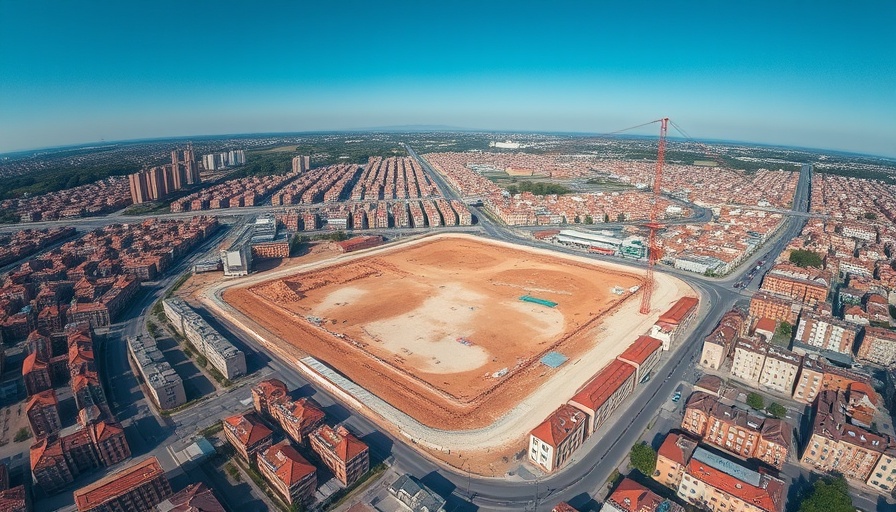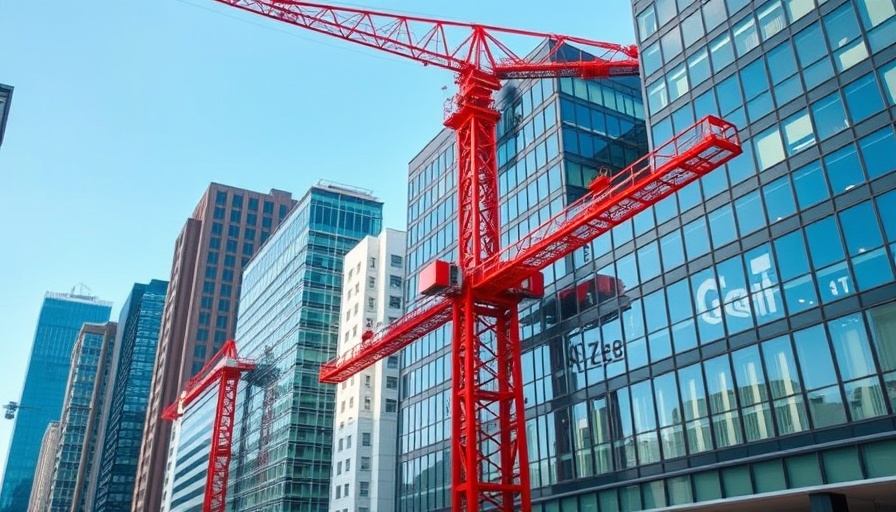
Scott Wiener's Ambitious Housing Plan Takes Center Stage
As urban areas grapple with the housing crisis, California’s state senator Scott Wiener has put forth a bold initiative aimed at transforming communities around transit hubs. His plan, which is currently moving through the California Senate, seeks to develop more housing units near public transport, making it not just a local priority but a statewide mandate. This initiative could potentially redefine how Californians live and commute.
A Response to the Housing Crisis
The urgency of Wiener’s proposal arises from the severe housing shortage faced by many Californian cities, particularly in San Francisco, where explosive demand has outstripped supply for decades. By pushing for housing development near transit, Wiener aims to increase accessibility and affordability, promoting a more sustainable urban environment. The proposal emphasizes a need for housing projects that transit agencies can support, thus reducing reliance on cars and supporting eco-friendly commuting options.
Implications for San Francisco: A City on the Edge
San Francisco, known for its soaring rents and limited space, is sitting on acres of land ripe for development. However, extensive bureaucratic red tape and community pushback often hinder progress. This plan could streamline the approval process for developments near transit stations, addressing concerns from parents, young adults, and solo residents who struggle to find affordable living options.
Understanding the Legislative Journey
Wiener’s bill, labeled SB 79, is designed to ease restrictions and encourage more housing developments alongside public transit infrastructure. The proposal is currently being debated in Sacramento, drawing mixed reactions from stakeholders. Advocates argue that it’s about time the state took a strong stance on increasing housing availability, while opponents express concern over potential overdevelopment and loss of community character.
Looking Ahead: Potential Outcomes
As the legislative process continues, many are watching closely to evaluate potential outcomes of this housing strategy. If successful, it may encourage similar policies across the nation, as urban centers worldwide face the pressing challenge of affordable housing. The success of SB 79 could serve as a model for other cities seeking to adapt to increasing housing demands while efficiently utilizing existing transit systems.
Community Response and Public Opinions
The public response to Wiener’s plan has been somewhat polarized. Some community leaders and residents express cautious optimism, highlighting that increased housing could allow families to settle comfortably in neighborhoods near schools and workplaces, thus reducing commute times and enhancing local economies. Conversely, fears regarding changes to neighborhood aesthetics and traffic congestion remain prevalent. Engaging with neighborhoods through public forums could help mitigate some concerns as the bill progresses.
The Bigger Picture: Transit-Oriented Development
The concept of transit-oriented development (TOD) is gaining traction not only in California but across urban areas globally. The goal is to create walkable communities, reduce carbon footprints, and integrate public transport with housing needs. If Wiener’s legislation succeeds, it could usher in a new era of urban planning that prioritizes people over vehicles, environmental sustainability, and long-term viability of cities.
Final Thoughts: Why It Matters
The ongoing debates surrounding SB 79 underscore the complexities of developing housing in major urban centers. For residents, understanding these developments means more than just numbers; it shapes the future of their neighborhoods and communities. With a strong focus on transit-oriented solutions, Wiener’s initiative illuminates a pathway toward living in harmony with our environment and provides hope in these challenging times.
As this debate unfolds, individuals are encouraged to stay engaged, voice their opinions, and help shape the future of their living spaces. For those wanting to learn more about the intricacies of housing development in urban environments, local news and forums are vital resources for staying informed.
 Add Row
Add Row  Add
Add 




 Add Row
Add Row  Add
Add 

Write A Comment